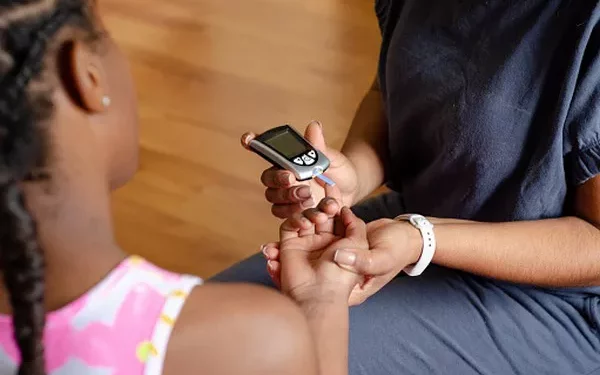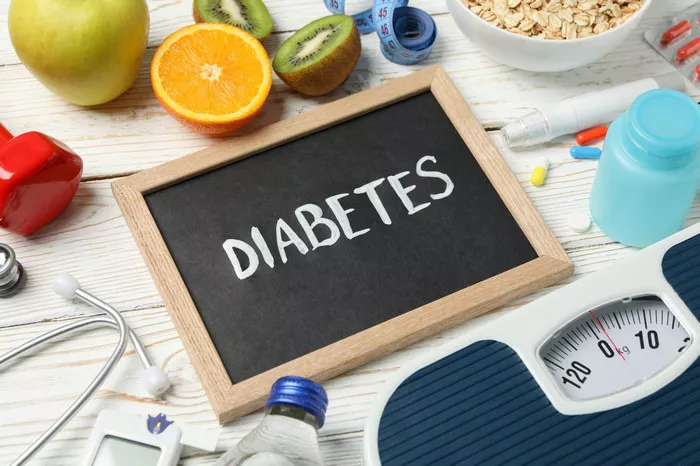Hyperglycemia, commonly known as high blood sugar, is a condition characterized by excessive levels of glucose in the bloodstream. It is a hallmark of diabetes and can also occur in people without diabetes under certain conditions. Managing blood sugar levels is crucial for preventing the acute and chronic complications associated with hyperglycemia. In this article, we will explore the various causes of high blood sugar, focusing on both diabetes-related and non-diabetes-related factors.
Mechanisms of Blood Sugar Regulation
To understand what causes high blood sugar, it is essential to first grasp how the body regulates glucose levels. Glucose regulation involves a complex interplay of hormones, primarily insulin and glucagon, which maintain blood sugar within a narrow range.
Insulin: The Key Regulator
Insulin is a hormone produced by the beta cells of the pancreas. It facilitates the uptake of glucose by cells, particularly in the liver, muscle, and fat tissues, for energy production or storage. When blood glucose levels rise after eating, insulin is released to help lower glucose levels by promoting its entry into cells.
Glucagon: The Counter-Regulator
Glucagon, produced by the alpha cells of the pancreas, has the opposite effect of insulin. It stimulates the liver to release stored glucose into the bloodstream, especially during fasting or between meals, to maintain normal blood glucose levels.
Other Hormones
Other hormones, such as cortisol, epinephrine (adrenaline), and growth hormone, also play roles in glucose regulation, particularly during stress, illness, or fasting.
Causes of High Blood Sugar in Diabetes
Diabetes is the most common condition associated with hyperglycemia. There are several types of diabetes, each with distinct mechanisms leading to high blood sugar.
Type 1 Diabetes
In type 1 diabetes, the immune system attacks and destroys the insulin-producing beta cells of the pancreas. This autoimmune destruction leads to an absolute deficiency of insulin, resulting in high blood sugar levels. The exact cause of this immune response is not fully understood but involves a combination of genetic and environmental factors.
Type 2 Diabetes
Type 2 diabetes is characterized by insulin resistance and a relative deficiency of insulin. In this condition, the body’s cells become less responsive to insulin, requiring higher levels of insulin to maintain normal blood glucose levels. Over time, the pancreas may not be able to produce enough insulin to overcome this resistance, leading to hyperglycemia. Risk factors for type 2 diabetes include obesity, physical inactivity, poor diet, and genetic predisposition.
Gestational Diabetes
Gestational diabetes occurs during pregnancy when hormonal changes cause insulin resistance. The placenta produces hormones that can block the action of insulin, leading to elevated blood glucose levels. This type of diabetes typically resolves after childbirth but increases the risk of developing type 2 diabetes later in life.
Other Specific Types of Diabetes
There are other, less common forms of diabetes caused by specific genetic mutations, pancreatic diseases, or medications. Examples include monogenic diabetes (caused by single-gene mutations), cystic fibrosis-related diabetes, and steroid-induced diabetes.
Causes of High Blood Sugar in Non-Diabetic Individuals
Hyperglycemia can also occur in people without diabetes due to various factors that temporarily or chronically disrupt glucose regulation.
Stress and Illness
Stress, whether physical (such as surgery or infection) or emotional, triggers the release of stress hormones like cortisol and epinephrine. These hormones increase blood glucose levels by promoting glucose production in the liver and reducing insulin sensitivity.
Medications
Certain medications can raise blood sugar levels. Corticosteroids, often prescribed for inflammatory conditions, can cause significant hyperglycemia. Other drugs, such as some antipsychotics and beta-blockers, can also impact glucose metabolism.
Diet and Overeating
Consuming large amounts of carbohydrates, especially simple sugars, can lead to spikes in blood glucose levels. Overeating in general, regardless of the type of food, can overwhelm the body’s ability to regulate glucose, particularly if there is underlying insulin resistance.
Lack of Physical Activity
Physical inactivity can contribute to hyperglycemia by increasing insulin resistance and reducing glucose uptake by muscles. Regular physical activity enhances insulin sensitivity and helps maintain normal blood sugar levels.
Hormonal Imbalances
Conditions that affect hormone levels, such as Cushing’s syndrome (excess cortisol) or acromegaly (excess growth hormone), can cause hyperglycemia by interfering with insulin action and promoting glucose production.
Complications of High Blood Sugar
Chronic hyperglycemia can lead to various acute and long-term complications, highlighting the importance of maintaining blood glucose levels within a normal range.
Acute Complications
Diabetic Ketoacidosis (DKA): DKA is a life-threatening condition most commonly seen in type 1 diabetes. It occurs when there is a severe insulin deficiency, leading to the breakdown of fat for energy and the production of ketones, which can cause metabolic acidosis.
Hyperosmolar Hyperglycemic State (HHS): HHS is a serious condition seen in type 2 diabetes, characterized by extremely high blood glucose levels and severe dehydration. It can lead to altered mental status and requires immediate medical attention.
Chronic Complications
Cardiovascular Disease: Prolonged hyperglycemia can damage blood vessels and increase the risk of cardiovascular diseases such as heart attack and stroke.
Neuropathy: High blood sugar can damage nerves, leading to diabetic neuropathy, which causes pain, numbness, and tingling, especially in the extremities.
Nephropathy: Chronic hyperglycemia can damage the kidneys, leading to diabetic nephropathy, which can progress to kidney failure.
Retinopathy: High blood sugar can damage the blood vessels in the eyes, leading to diabetic retinopathy, which can cause vision loss.
Foot Problems: Poor blood circulation and nerve damage can lead to foot ulcers and infections, potentially resulting in amputation if not properly managed.
Diagnosis of Hyperglycemia
Diagnosing hyperglycemia involves a combination of symptom assessment and laboratory tests.
Symptoms
Common symptoms of hyperglycemia include:
- Frequent urination (polyuria)
- Excessive thirst (polydipsia)
- Blurred vision
- Fatigue
- Headaches
- Difficulty concentrating
In more severe cases, symptoms may include nausea, vomiting, and confusion.
Laboratory Tests
Fasting Blood Glucose Test: This test measures blood glucose levels after an overnight fast. A level of 126 mg/dL (7.0 mmol/L) or higher indicates diabetes.
Oral Glucose Tolerance Test (OGTT): This test measures blood glucose levels before and after consuming a glucose-rich drink. A level of 200 mg/dL (11.1 mmol/L) or higher two hours after the drink indicates diabetes.
Hemoglobin A1c Test: This test measures the average blood glucose levels over the past two to three months. An A1c level of 6.5% or higher indicates diabetes.
Management of High Blood Sugar
Managing hyperglycemia involves a combination of lifestyle changes, medication, and regular monitoring.
Lifestyle Changes
Healthy Diet: A balanced diet that focuses on whole grains, lean proteins, healthy fats, and plenty of fruits and vegetables can help maintain stable blood sugar levels. Carbohydrate counting and portion control are essential for individuals with diabetes.
Regular Physical Activity: Engaging in regular exercise improves insulin sensitivity and helps lower blood glucose levels. Aim for at least 150 minutes of moderate-intensity aerobic activity per week, along with strength training exercises.
Weight Management: Maintaining a healthy weight through diet and exercise can significantly reduce insulin resistance and improve blood glucose control.
Medications
Insulin: For individuals with type 1 diabetes and some with type 2 diabetes, insulin therapy is essential for managing blood glucose levels. Different types of insulin (rapid-acting, short-acting, intermediate-acting, and long-acting) are used to mimic the body’s natural insulin response.
Oral Medications: Various oral medications are available for managing type 2 diabetes, including metformin, sulfonylureas, and DPP-4 inhibitors. These medications work by improving insulin sensitivity, increasing insulin production, or reducing glucose production in the liver.
GLP-1 Receptor Agonists and SGLT2 Inhibitors: These newer classes of medications for type 2 diabetes help lower blood glucose levels by increasing insulin secretion, slowing gastric emptying, and promoting glucose excretion in the urine.
Monitoring
Regular monitoring of blood glucose levels is crucial for individuals with diabetes to adjust their treatment plans and prevent complications. This includes self-monitoring of blood glucose (SMBG) using a glucometer and continuous glucose monitoring (CGM) systems that provide real-time data on blood sugar levels.
Education and Support
Diabetes education and support from healthcare providers, diabetes educators, and support groups are essential for managing hyperglycemia. Education on blood glucose monitoring, medication management, dietary choices, and recognizing symptoms of hyperglycemia and hypoglycemia empowers individuals to take control of their condition.
Preventing High Blood Sugar
Preventing hyperglycemia involves proactive management and lifestyle adjustments, especially for individuals at risk of developing diabetes or those already diagnosed with the condition.
Healthy Lifestyle Choices
Adopting a healthy lifestyle that includes a balanced diet, regular physical activity, and weight management can significantly reduce the risk of hyperglycemia. Limiting the intake of sugary and processed foods, opting for whole foods, and staying active are key preventive measures.
Regular Health Check-Ups
Regular health check-ups and screening for diabetes and prediabetes can help identify individuals at risk and allow for early intervention. Monitoring blood glucose levels, blood pressure, and cholesterol levels are important for maintaining overall health and preventing complications.
Stress Management
Effective stress management techniques, such as mindfulness, meditation, yoga, and adequate sleep, can help reduce the impact of stress on blood glucose levels. Engaging in hobbies, socializing, and seeking professional help when needed can also contribute to better stress management.
Medication Adherence
For individuals with diabetes, adhering to prescribed medications and insulin regimens is crucial for maintaining blood glucose control. Understanding the importance of medication adherence and following healthcare provider recommendations can prevent hyperglycemia and its associated complications.
See also: What are Different Types of Insulin for Diabetes
Conclusion
Hyperglycemia, or high blood sugar, can result from a variety of factors, including diabetes, stress, illness, medications, diet, and lifestyle choices. Understanding the causes of hyperglycemia and implementing effective management strategies are essential for preventing complications and maintaining overall health. By adopting a healthy lifestyle, adhering to prescribed treatments, and seeking education and support, individuals can manage their blood sugar levels and improve their quality of life. Early detection and proactive management are key to preventing the acute and chronic complications associated with hyperglycemia, ensuring better long-term outcomes for individuals with or at risk of diabetes.
Related topics:
What are the Early Warning Signs of Diabetes



























